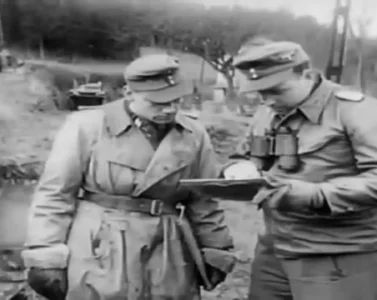- Military Myths, Mysteries, Legends & Curiosities
- Beating Hitler with Humor (1940)
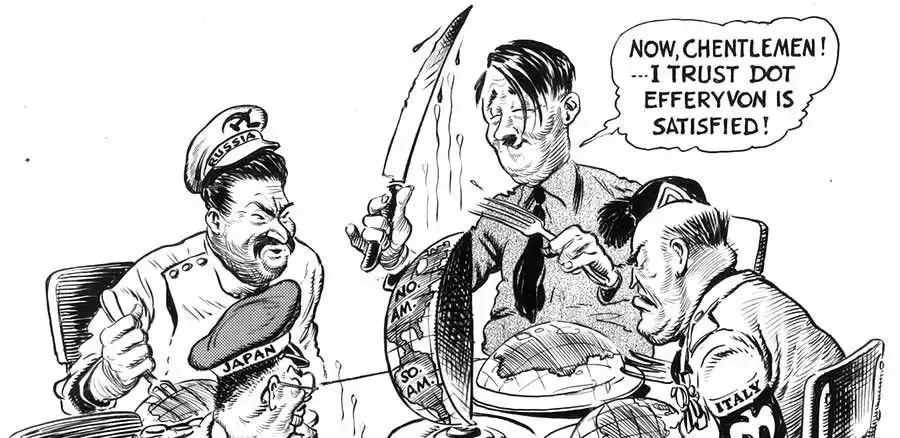
Beating Hitler with Humor (1940) The BBC’s German Service used satire to reach ordinary Germans in World War Two
It’s a late night in London in 1940, and Austrian exile Robert Lucas is writing at his desk. Bombs are raining down on the city every night, Hitler’s army is winning throughout Europe and the invasion of England has become a genuine prospect.
Despite the air-raid sirens and “the hell’s noise of the war machinery" going off all around him, Robert Lucasis focused on the job at hand: to “fight for the souls of the Germans”. He is composing a radio broadcast aimed at citizens of the Third Reich. But this is not a passionate plea for them to come to their senses. This is an attempt to make them laugh.
Lucas had been working for the German Service of the BBC ever since it sprang to life during the height of the Sudeten Crisis in September 1938. The aim of the German Service from the beginning (when it broadcast a translation of a Neville Chamberlainspeech shortly before he signed the infamous Munich Agreement) was to break the Nazimonopoly on news within the Third Reich.
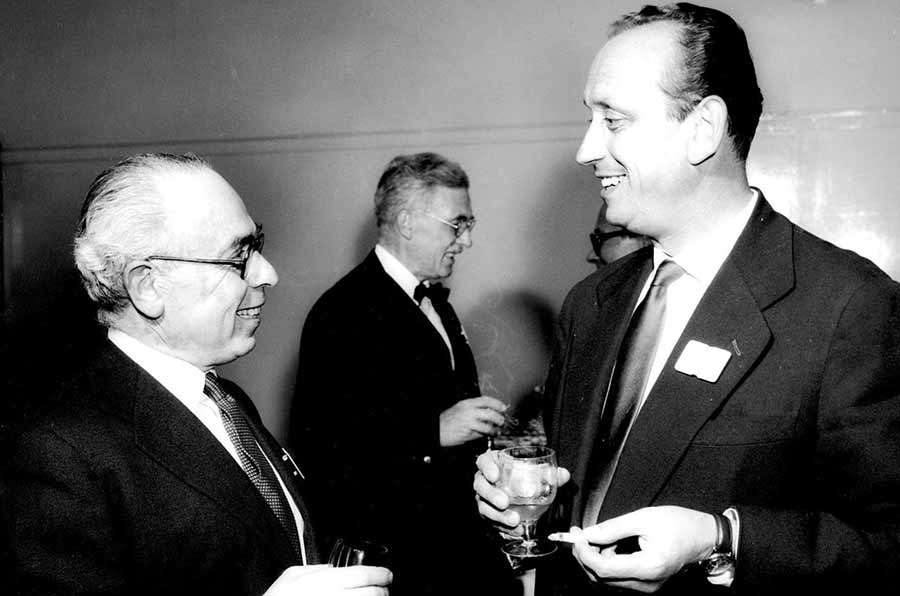
The Nazis could not stop foreign radio waves crossing into Germany, but they could make listening to enemy stations a crime. They did so as soon as war broke out. They jailed those caught and the sentence for spreading news from enemy broadcasts was the death penalty. Germans brave enough to disregard the law had to beware of eavesdroppers and ill-meaning neighbors, and so would listen under blankets as if curing themselves of a heavy cold over a bowl of steaming water.
But why would you broadcast satire under these circumstances? Cracking jokes to sustain morale on Britain’s home front might be a successful strategy and was implemented particularly well in the BBC’s wartime satire It’s That Man Again (better known as ITMA). But for enemy propaganda? And who would risk their life listening to it?
"The satire programs relied upon an unlikely coalition between the BBC, British propaganda officials and disaffected German-speaking exiles."
When Lucas began writing “Die Briefe des Gefreiten Adolf Hirnschal” he had “no idea whether there would be at least 50 people in Germany listening”. He spoke “into the dark with no echo”, as he later described it. That his program - along with two other satire series called “Frau Wernicke and Kurt und Willi” - was commissioned in 1940 reveals the bold, experimental approach adopted by the German Service in its infancy.
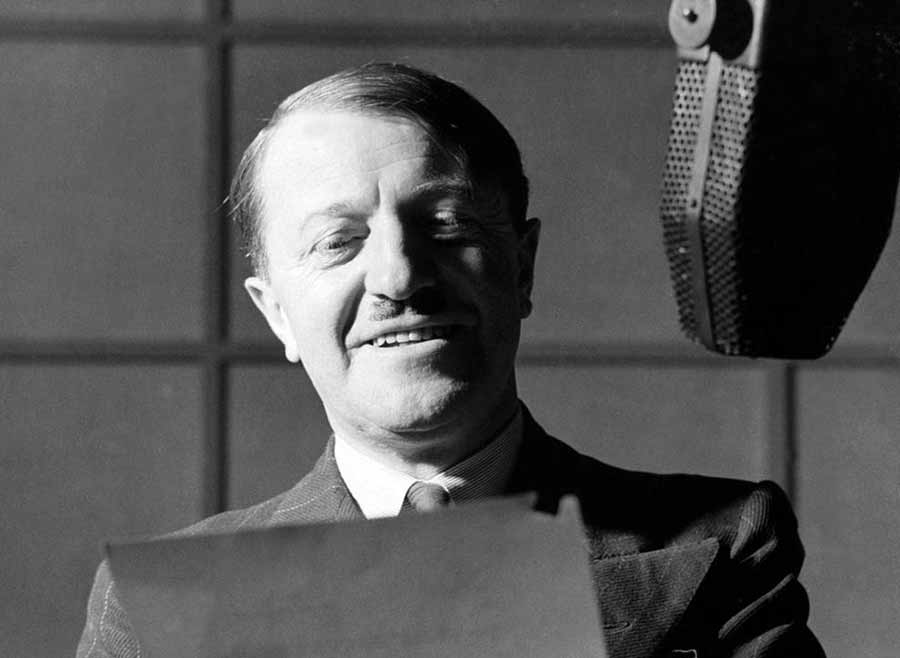
The BBC Home Service’s wartime satire It’s That Man Again (ITMA) starred Tommy Handley (Credit: BBC)
It lacked the staff, equipment, and organization to approach the daily task of counterpropaganda adequately. This was unchartered territory. Radio was still relatively new, and broadcasting to the enemy was a novel experience. This brought about a spirit of creativity and adventure. In 1940 there was an air of desperation. “All right, we might as well try it,” the BBC told Lucas when it commissioned “Die Briefe des Gefreiten Adolf Hirnschal”.
The satirical programs relied on an unlikely coalition between the BBC, British propaganda officials and disaffected German-speaking exiles. On the one hand, the British officials insisted that the message of the German Service had to sound “as English as Yorkshire pudding”. But it also needed to show an intimate knowledge of the German psyche, and for that it was much in debt to the contribution of the exiles. But the relationship was not always easy; as an “enemy alien”, Lucas and his fellow exiles were often regarded with suspicion.
Lost in Translation
We should understand the quirky content of the programs in this curious alliance. Adolf Hirnschal is a series of fictitious letters written by a German corporal on the front line to his wife. The protagonist reads the letters to his fighting comrade before he posts them. On the surface, Adolf Hirnschal is devoted to his beloved Führer. Yet so far-fetched are his exclamations of loyalty that the intention is clear: to expose the shallowness and mendacity of Nazi proclamations. In his first letter after they declare war on Russia in 1941, he tells his wife how he welcomed the news from his lieutenant they are being transferred to the Russian border:
I jump up in joy and say, “Mr. Lieutenant, kindly asking for permission to express that I am tremendously pleased that we are now fraternizing with the Russians. Did not our beloved Führer already say in 1939 that our friendship with the Russians is irrevocable and irreversible?”
Thus, Hirnschal exposes the hypocrisy of Hitler’s policy towards Russia, all under the cover of absolute loyalty. This was a method that Bruno Adler - a German art historian and author who had fled to England in 1936 - used for Frau Wernicke. The protagonist is a tough, good-hearted, chatty Berlin housewife who, through her manic monologues, complaints about injustices, rationing and the contradictions of everyday life during the war, all the time displaying a robust common sense. By juxtaposing her pseudo-naïve support for Nazism and the stark realities of the wartime life she describes, Adler’s subversive intentions are clear. In one instance Frau Wernicke asks her friend why she is so upset, and then immediately answers the question herself:
Only because your husband had to close his business and because your boy is now with the Wehrmacht and has had enough of it and because your girl, Elsbeth, has to do a second mandatory year of state labor and because - as you put it - you don’t have a family life anymore and you are not happy?
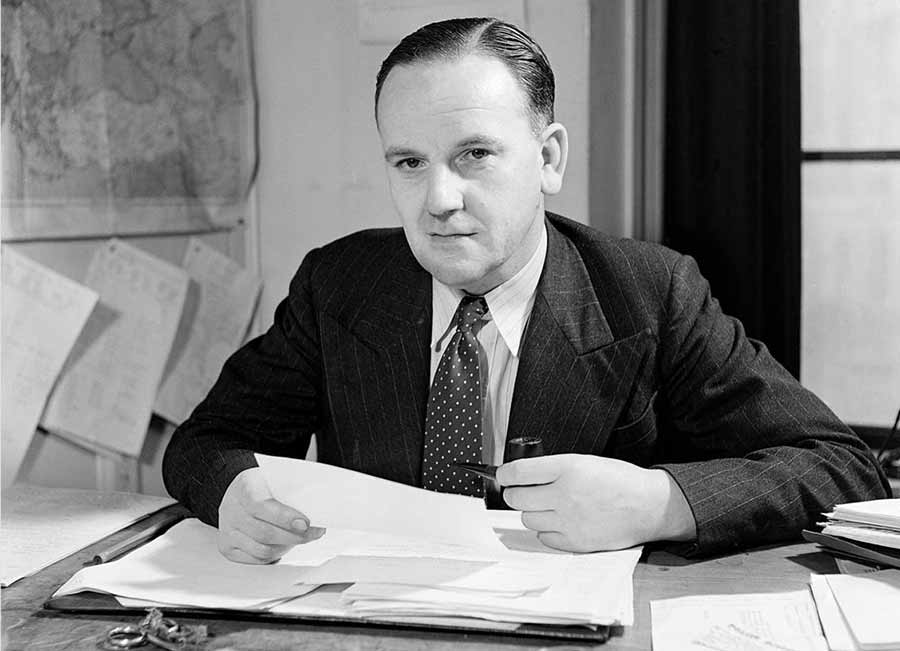
Kurt und Willi was also scripted by Bruno Adler. It is a series of dialogues between two friends: the former a schoolmaster, the latter an official in the German Propaganda Ministry. While discussing the events of the war over a beer in a Berlin bar, Kurt assumes the role of the naïve average German. Willi is a cynical, immoral opportunist, leaking to his friend the latest subterfuges, tricks, and blunders devised in the Propaganda Ministry.
These programs have a sense of humor that doesn’t translate well - literally from German to English, but also from radio to print. And they are of their time. But they raise questions which already back then were the subject of fierce debate. Could these programs really have any effect? Could satire be used as a weapon that would convert Germans to the British viewpoint and make them long for an end to war? Was it even appropriate? The BBC Director of European Broadcasts, Noel Newsome, had his doubts. Referring to a Kurt and Willi broadcast in 1944, he wrote:
"If this was funny and entertaining, it could only have served the lamentable purpose of easing the tension in Germany, just as, for instance, wisecracks about doodle bugs reduce tension here about robot bombs.… If Kurt und Willi were not hilarious the feature was a waste of precious time. On their home radio the Germans […] should not get jokes, when they tune in to London."
There were doubts about the virtues of satirical propaganda from the start. They broadcast the very first experiment with humor on the German Service on April Fool’s Day in 1940. The producers had to reassure the propaganda officials in Electra House that the transmission of “Der Führer Spricht”, a Hitler parody written and performed by Austrian exile Martin Miller, would remain an exception. Which, as we know, it did not. Other humorous programs followed, and soon the Russians got in on the act. Radio Moskva experimented with similar formats, one of which – “Frau Künnecke will jarnischts gesagt haben” - was an obvious copy of “Frau Wernicke”. But none of these were broadcast with such regularity as Hirnschal, Frau Wernicke and Kurt und Willi. They take us (either weekly or fortnightly) through the war, from summer 1940 right to the end.
"Didn’t mere existence of the satirical programs display faith in the intellect and, above all, the humanity of the audience?"
But who was listening to the German Service, and what did they make of it? According to Robert Lucas, a “flood of thank-you letters” arrived from listeners of the German Service as soon as the war was over. “The London broadcasts saved me from suicide during the blackest days of the Hitler war,” states one letter from the BBC Archives. Another reads: “It’s thanks to the BBC and the BBC alone that I had the moral strength not to become complicit.” Many of the letters singled out the satire programs: “That you also brought us humor made the unbearable bearable for us,” wrote one listener, while another expressed admiration for “how well you understand the soul of the people”.
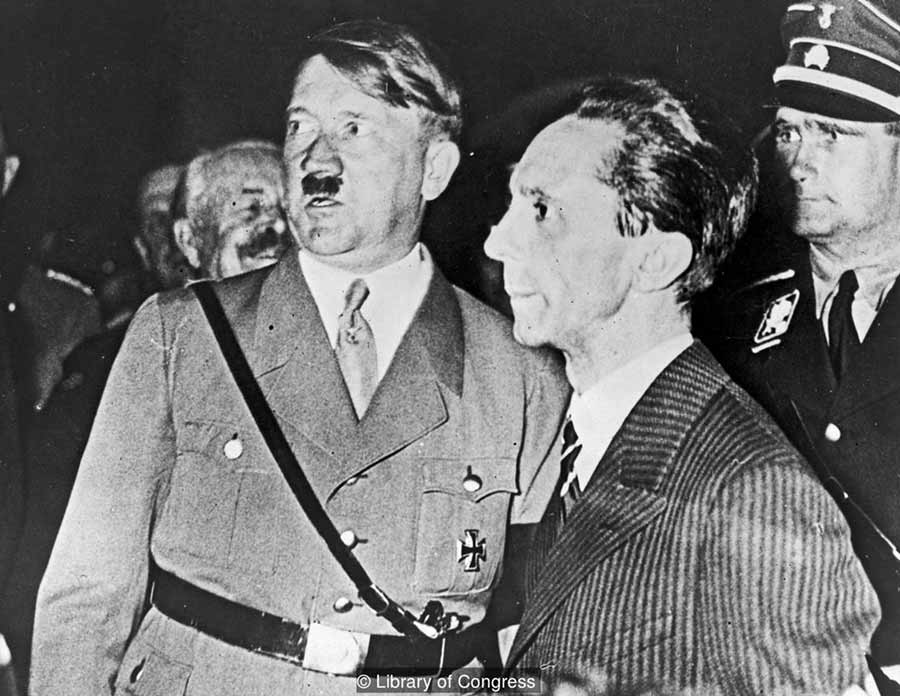
Perhaps those letters provide enough justification if you wonder - as Charlie Chaplin did after he learned about the atrocities of the Nazis - whether it was morally appropriate to ridicule them, as he did in The Great Dictator. Theodor Adorno insisted that anti-fascist satire does not grasp or depict reality and, worse still, it ignores or trivializes the gravity of National Socialism. But did not laughter at least remind people of what it means to be human? Didn’t the mere existence of the satirical programs display faith in the intellect and, above all, the humanity of the audience?
“Like any other tyranny, National Socialism was humorless”, writes Robert Lucas. Looking back now, perhaps that was the chief success of the pioneering satire programs of the German Service. For this was one area in which the Nazis had nothing to offer and could not compete. And even if the absurd monologues of Frau Wernicke or Adolf Hirnschal were heard by a relatively small number of Germans, even if they were not always funny, that they provided comfort and perhaps even enlightenment to anyone was proof that Lucas’s mission to “fight for the souls of the Germans” was not completely in vain.
Audio
- {{#owner}}
- {{#url}} {{#avatarSrc}}
{{name}} {{/url}} {{^url}} {{#avatar}} {{& avatar}} {{/avatar}} {{name}} {{/url}} - {{/owner}} {{#created}}
- {{created}} {{/created}}


